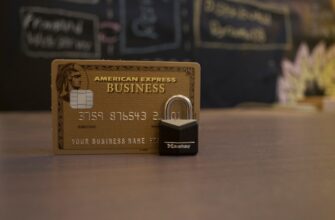“title”: “Lock Tokens SOL Step by Step: Ultimate Guide to Securing Solana Assets”,
“content”: “
- Lock Tokens SOL Step by Step: Secure Your Solana Assets Like a Pro
- Why Lock SOL Tokens? Key Benefits Explained
- Prerequisites Before Locking SOL
- How to Lock Tokens SOL Step by Step
- Top Security Practices for Locking SOL
- Unlocking SOL Tokens: What You Need to Know
- Frequently Asked Questions (FAQ)
- Can I lock SOL tokens without a smart contract?
- What happens if I lose access to my wallet?
- Are locked SOL tokens eligible for staking rewards?
- Can I transfer locked SOL to another address?
- How do I verify a legitimate locking contract?
Lock Tokens SOL Step by Step: Secure Your Solana Assets Like a Pro
nn
Locking SOL tokens is a critical security measure for Solana users participating in DeFi protocols, staking, or token vesting schedules. This comprehensive guide breaks down exactly how to lock tokens SOL step by step – whether you’re safeguarding assets, meeting liquidity requirements, or preparing for token launches. Follow these proven methods to protect your Solana investments effectively.
nn
Why Lock SOL Tokens? Key Benefits Explained
n
Locking SOL tokens isn’t just about security – it unlocks strategic advantages:
n
- n
- Prevent Unauthorized Transfers: Freeze assets to block malicious access
- Meet Staking Requirements: Fulfill minimum lock periods for validator rewards
- Participate in IDOs: Secure allocation spots in token launches
- Enable Vesting Schedules: Automate token release for teams/investors
- Reduce Market Volatility: Demonstrate long-term commitment to projects
n
n
n
n
n
nn
Prerequisites Before Locking SOL
n
Prepare these essentials for a smooth locking process:
n
- n
- A non-custodial Solana wallet (Phantom, Solflare, or Backpack)
- Enough SOL for transaction fees (0.000005 SOL per tx + protocol fees)
- Clear understanding of lock duration and conditions
- Verified connection to the locking platform (e.g., Raydium, Orca, or project dashboard)
n
n
n
n
nn
How to Lock Tokens SOL Step by Step
n
Follow this universal 5-step framework for locking SOL tokens:
n
- n
- Connect Your Walletn
Navigate to your chosen platform (e.g., Solana dApp) and link your wallet via the “Connect Wallet” button. Authorize the connection in your wallet pop-up.
- Select Lock Parametersn
Specify:n
- n
- Amount of SOL to lock
- Lock duration (days/weeks/months)
- Recipient address (if different from sender)
n
n
n
- Review Smart Contractn
Examine the lock agreement details including:n
- n
- Early withdrawal penalties
- Automatic renewal clauses
- Fee structure
n
n
n
- Approve Transactionn
Confirm the lock request in your wallet interface. Double-check:n
- n
- Recipient address accuracy
- Gas fee amount
- Network (Solana Mainnet)
n
n
n
- Verify Lock Statusn
Check platform dashboard or blockchain explorer (Solscan.io) for:n
- n
- Transaction confirmation
- Lock expiration timestamp
- Locked balance visibility
n
n
n
n n
n n
n n
n n
n
nn
Top Security Practices for Locking SOL
n
- n
- Always use hardware wallets for large locks (Ledger/Trezor)
- Bookmark legitimate platform URLs to avoid phishing sites
- Enable transaction simulation in Phantom wallet to preview outcomes
- Start with test locks using minimal SOL before large commitments
- Monitor lock expiration dates with calendar alerts
n
n
n
n
n
nn
Unlocking SOL Tokens: What You Need to Know
n
Unlocking occurs automatically upon expiration unless you’ve used:p>n
- n
- Manual Unlock Platforms: Visit the original dApp and trigger release
- Time-Lock Programs: Tokens return to your wallet automatically
- Early Withdrawal: Typically incurs 10-50% penalty (check protocol rules)
n
n
n
n
Always verify transaction success on Solscan.io post-unlock.
nn
Frequently Asked Questions (FAQ)
nn
Can I lock SOL tokens without a smart contract?
n
No – all SOL locks execute via smart contracts for transparency and security. Always audit contract code via Solana Explorer before approving.
nn
What happens if I lose access to my wallet?
n
Locked tokens remain inaccessible without your private keys. Recovery is impossible – store seed phrases offline in multiple secure locations.
nn
Are locked SOL tokens eligible for staking rewards?
n
Only if locked through a staking-specific contract. Standard locks don’t generate yield unless integrated with DeFi protocols like Marinade Finance.
nn
Can I transfer locked SOL to another address?
n
Typically no – locked tokens are non-transferable until the release date. Some protocols allow assigning beneficiary addresses during initial lock setup.
nn
How do I verify a legitimate locking contract?
n
Check:n
- n
- Official project documentation links
- Audit reports from firms like Certik or Quantstamp
- Community verification on Solana forums
n
n
n
nn
Mastering how to lock tokens SOL step by step transforms you from a passive holder to a strategic Solana participant. By following this guide, you’ll secure assets against threats while unlocking advanced ecosystem opportunities – all with minimized risk and maximized confidence.
”
}








